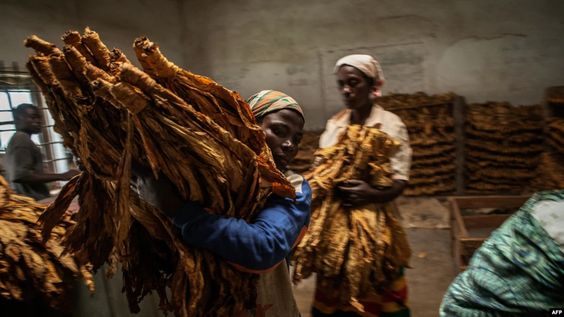Africa
Malawi has been warned by the UN not to use children on tobacco farms

According to a United Nations assessment, Malawi still has 3,000 children working in its tobacco business despite scrapping a tenancy system that was thought to have encouraged child labor last year.
The UN High Commissioner for Human Rights was worried about the report’s conclusions, so he or she put out a statement on Wednesday.
Siobhan Mullally, a specialist who contributed to the report and is the U.N.’s special rapporteur on trafficking in persons, told VOA on Thursday that the organization’s worries stem from its interactions with the Malawian government and cigarette corporations doing business there.
“We made formal notifications to the businesses and the Malawian government more than two months ago,” Mullally added. “They responded, and those were published. Therefore, we will keep collaborating with them to voice these issues.
Agrarian labor practices known as “sharecropping,” which are frequently exploitative and were long held responsible for the proliferation of child labor in the tobacco sector, were outlawed in Malawi last year.
According to the U.N. expert study, there were reported human rights violations in the sector that affected more than 3,000 children and 7,000 adults.
Additionally, it states that more than 400,000 kids were estimated to not have attended school following COVID-19.
“This is truly why we want to see much more quick effort to monitor the situation and prevent such occurrences,” added Mullally. “Additionally, exploitation risks must be effectively managed.” “The tobacco businesses and government need to take stronger steps to avoid the recruitment and exploitation of minors on tobacco farms to secure their protection.”
Allegations
Approximately 13% of Malawi’s GDP and 60% of its foreign exchange revenues come from the country’s main cash crop, tobacco.
However, following claims of child labor, the United States government halted tobacco imports from Malawi in 2019.
The president of Malawi, Lazarus Chakwera, was forced by this to sign laws that will change the Employment Act in 2021 and get rid of the tenancy system.
The Malawian government is working on several projects to stop children from working. One of these is the National Social Cash Transfer Program, which helps low-income families in high-risk areas keep their kids in school.
But according to the U.N., Malawi and some tobacco firms’ initiatives, such as funding school nutrition programs and scholarships, aren’t doing enough to solve the issue.
“The government can make sure that labor inspectors from civil society have access and that the businesses that have been given authorization to operate have taken all necessary steps,” Mullally added. “If there is a trafficking problem, law enforcement must get involved.”
renowned cigarette brands
According to the U.N. experts, they have already spoken with some of the businesses that are active in Malawi’s tobacco market, including British American Tobacco, Imperial, Philip Morris International, and Japan Tobacco Group.
Imperial Brands PLC, a tobacco company, takes the issues brought up in the U.N. report seriously. According to Simon Evans, group media relations manager for Imperial Brands PLC, the company does not support exploitative practices in its supply chains, which is written in the Code of Conduct on its corporate website.
Evans said that the company has been a supporter of the Eliminating Child Labor in Tobacco Growing Foundation for a long time, and that it is trying to stop exploitation by involving many different groups.
One of these is the industry-wide Sustainable Tobacco Program, in which all tobacco source suppliers are required to take part in order to stop child labor.
Vera Kamtukule, the minister of labor for Malawi, told VOA that the country’s government runs a program that allows kids who have been removed from child labor to enroll in both academic and vocational training programs.
“This year, 528 people have withdrawn their applications overall, compared to 173 last year,” Kamtukule said. “196 people have started their careers overall, up from three last year. They have already sent 65 students back to school this year, versus 54 students last year.
According to Kamtukule, the Malawian government is trying to end child labor by 2025.
Kamtukule stated, “What I can tell you is that the struggle against child labor is actually happening.” It is not something impromptu.
